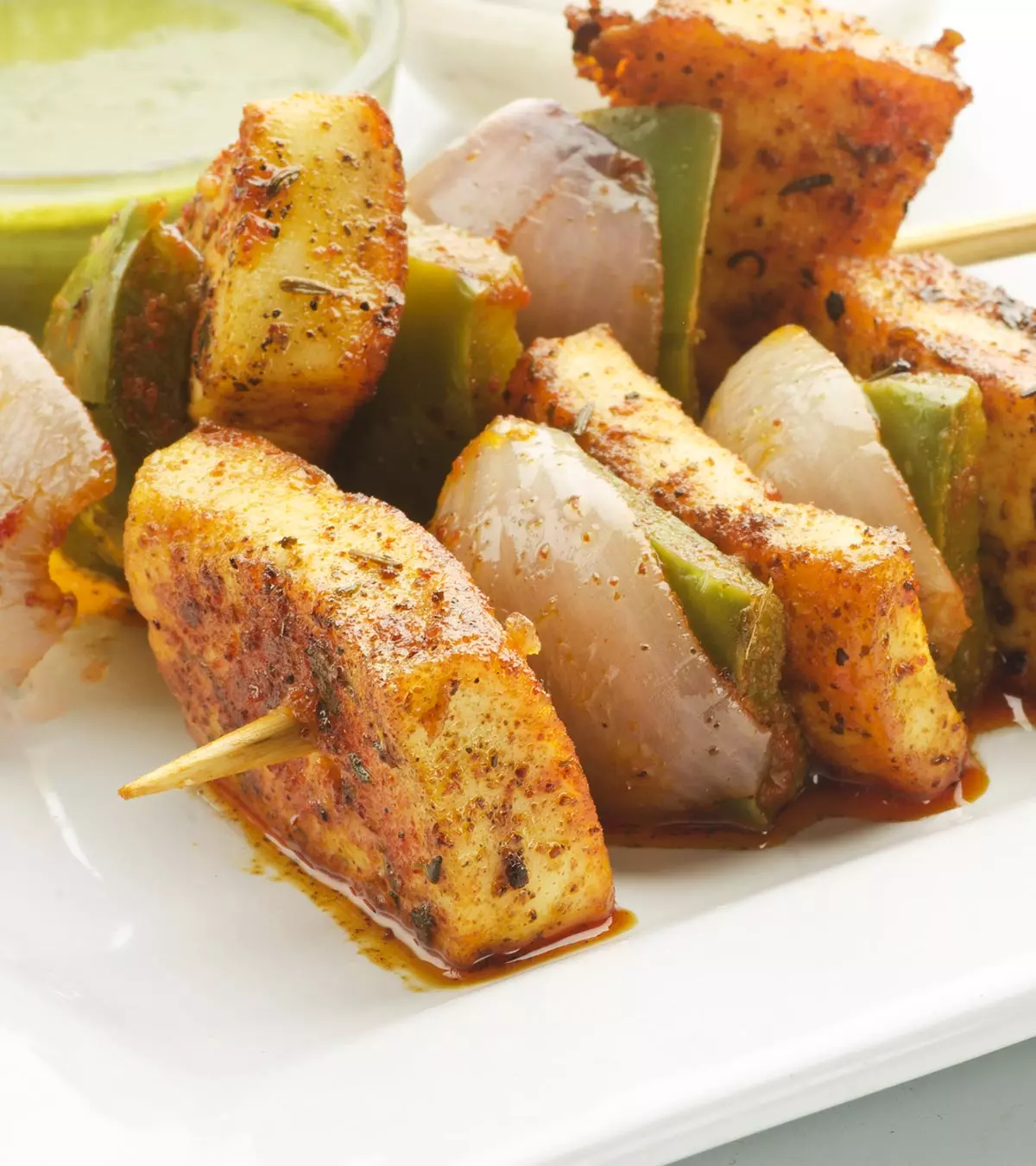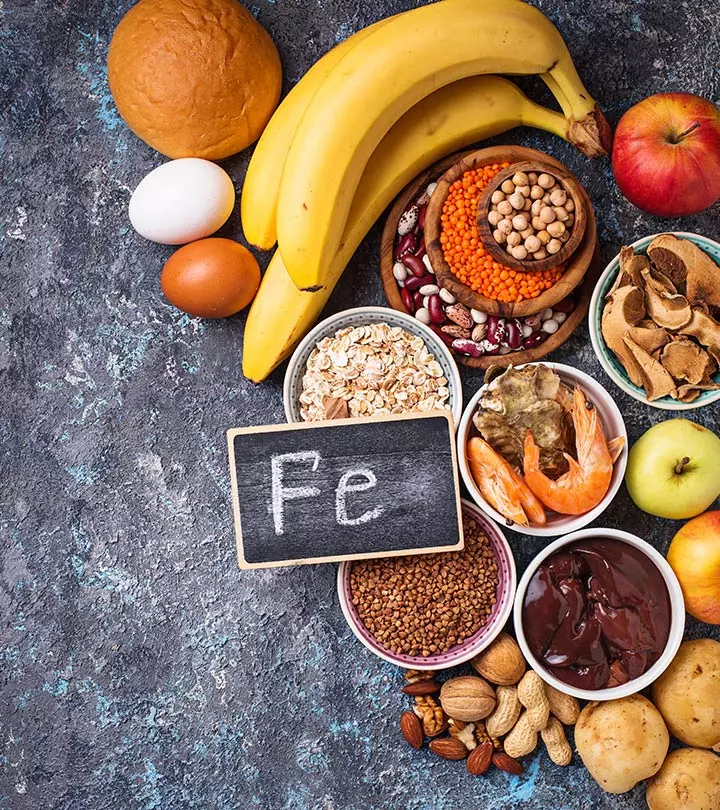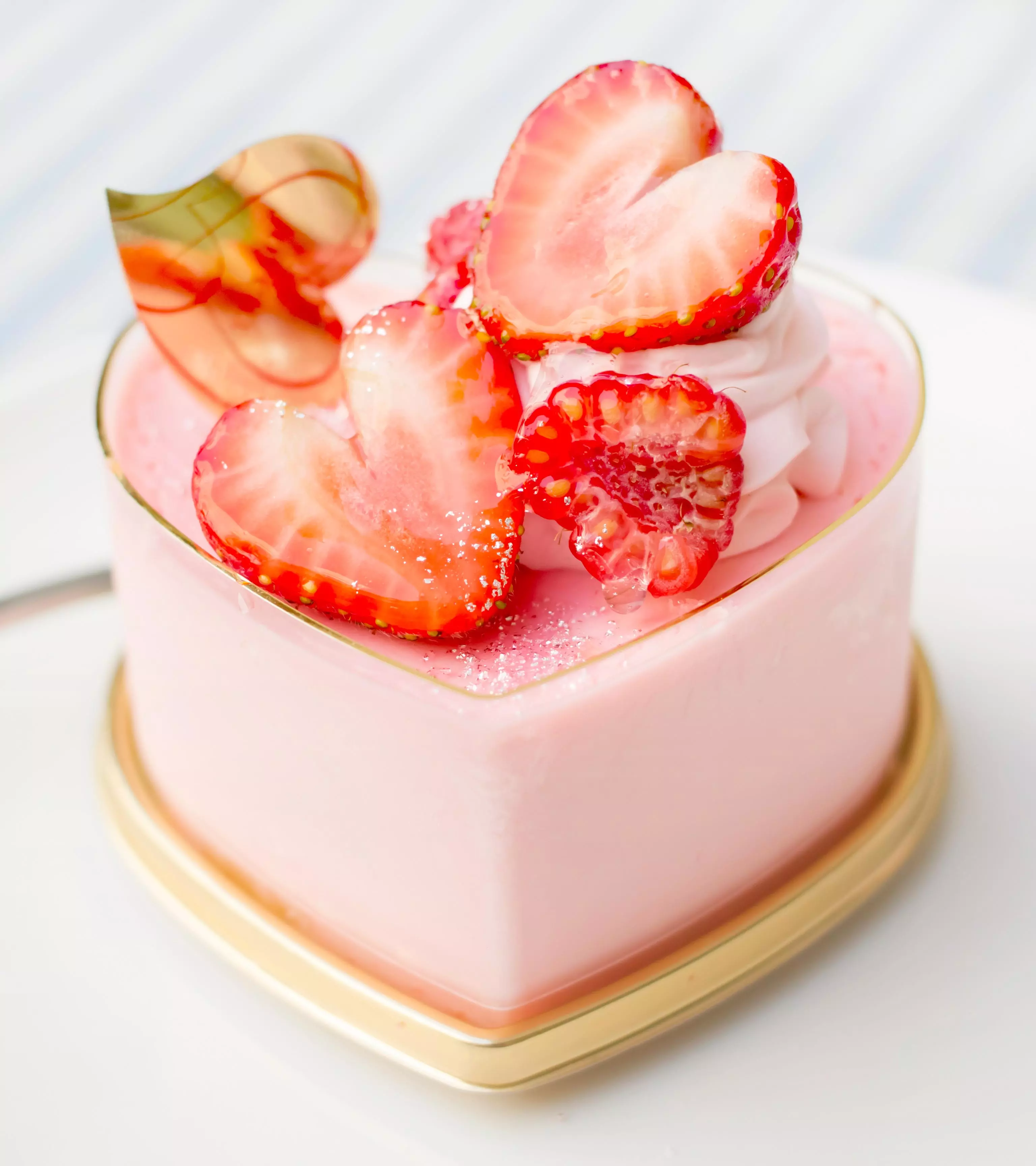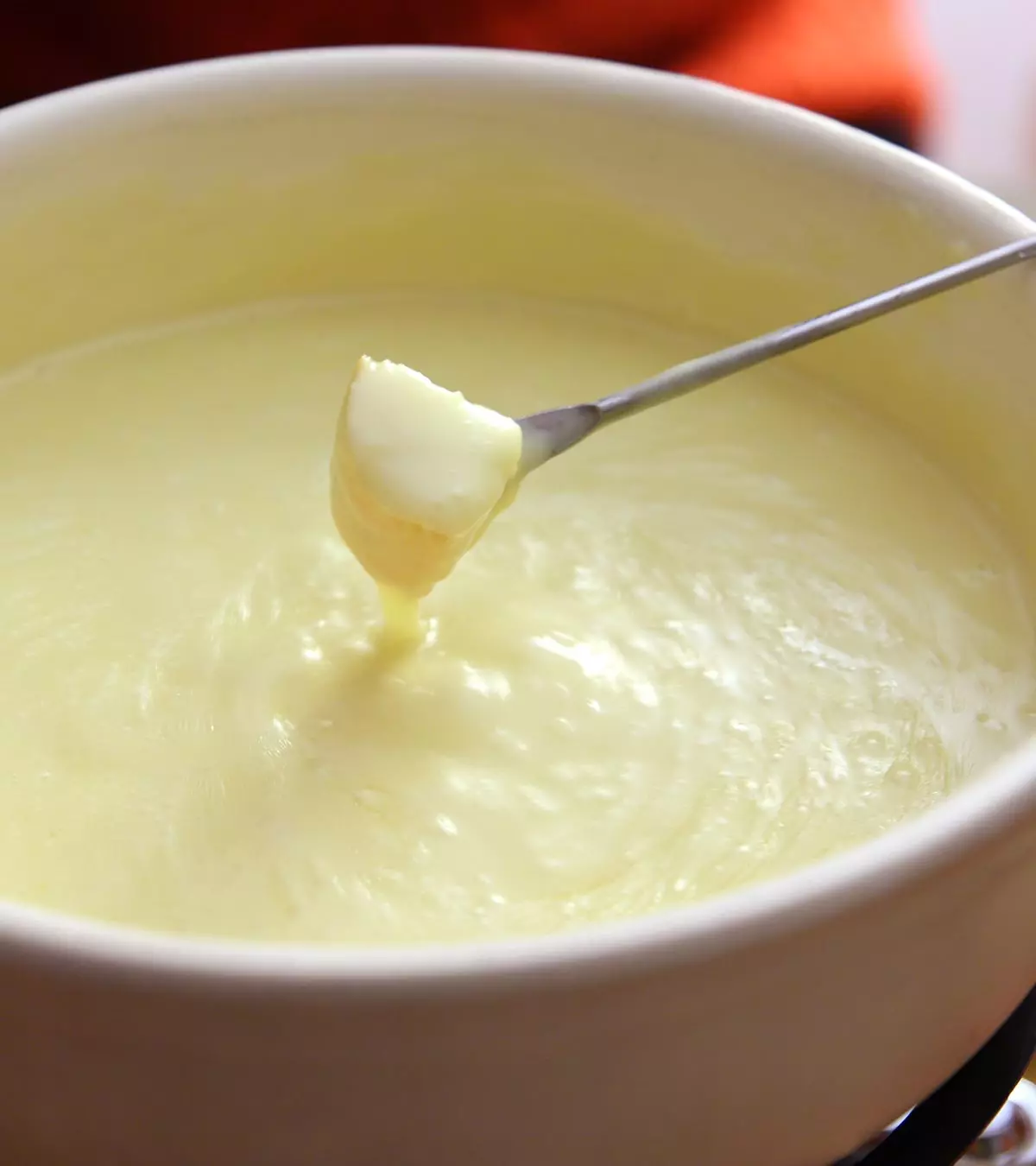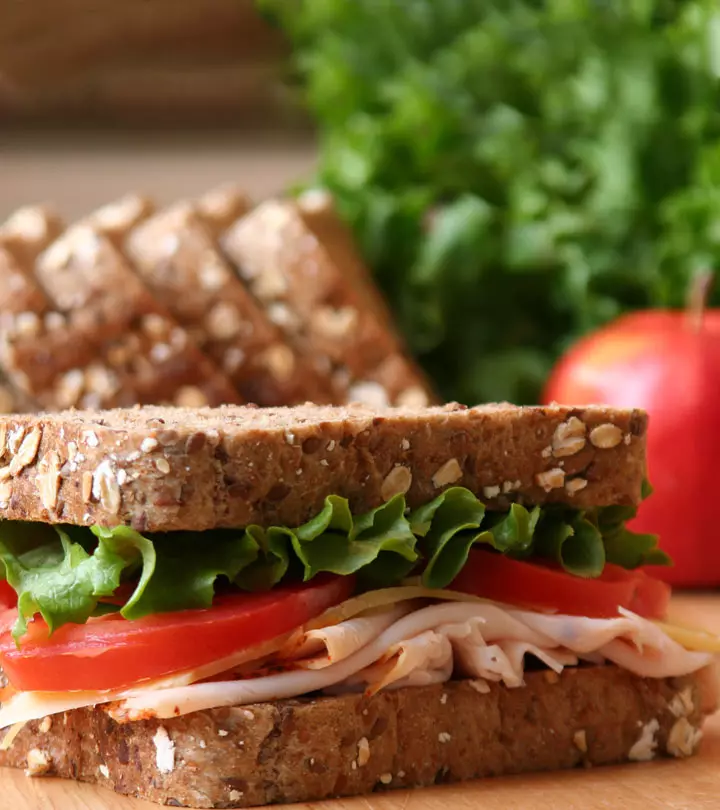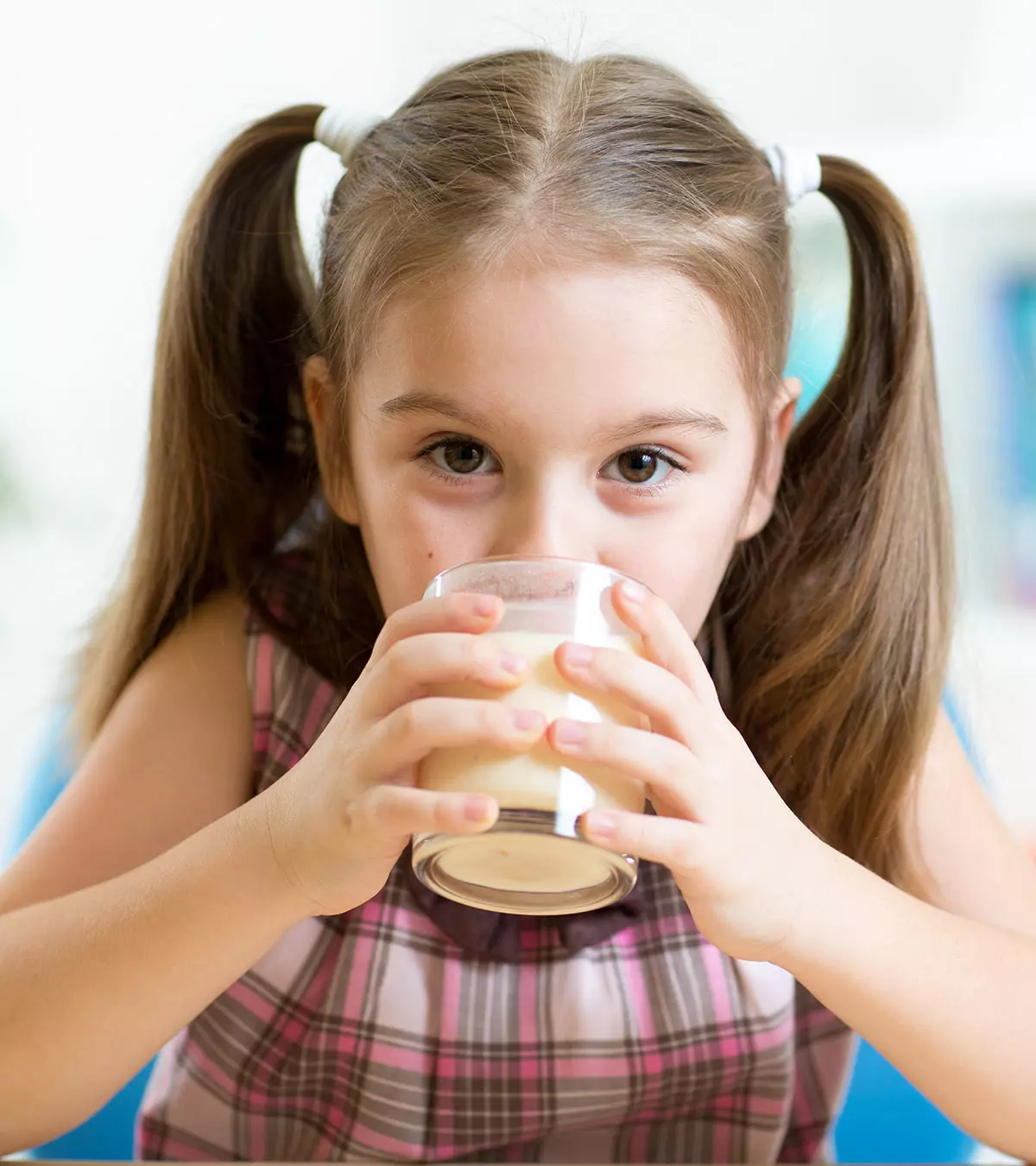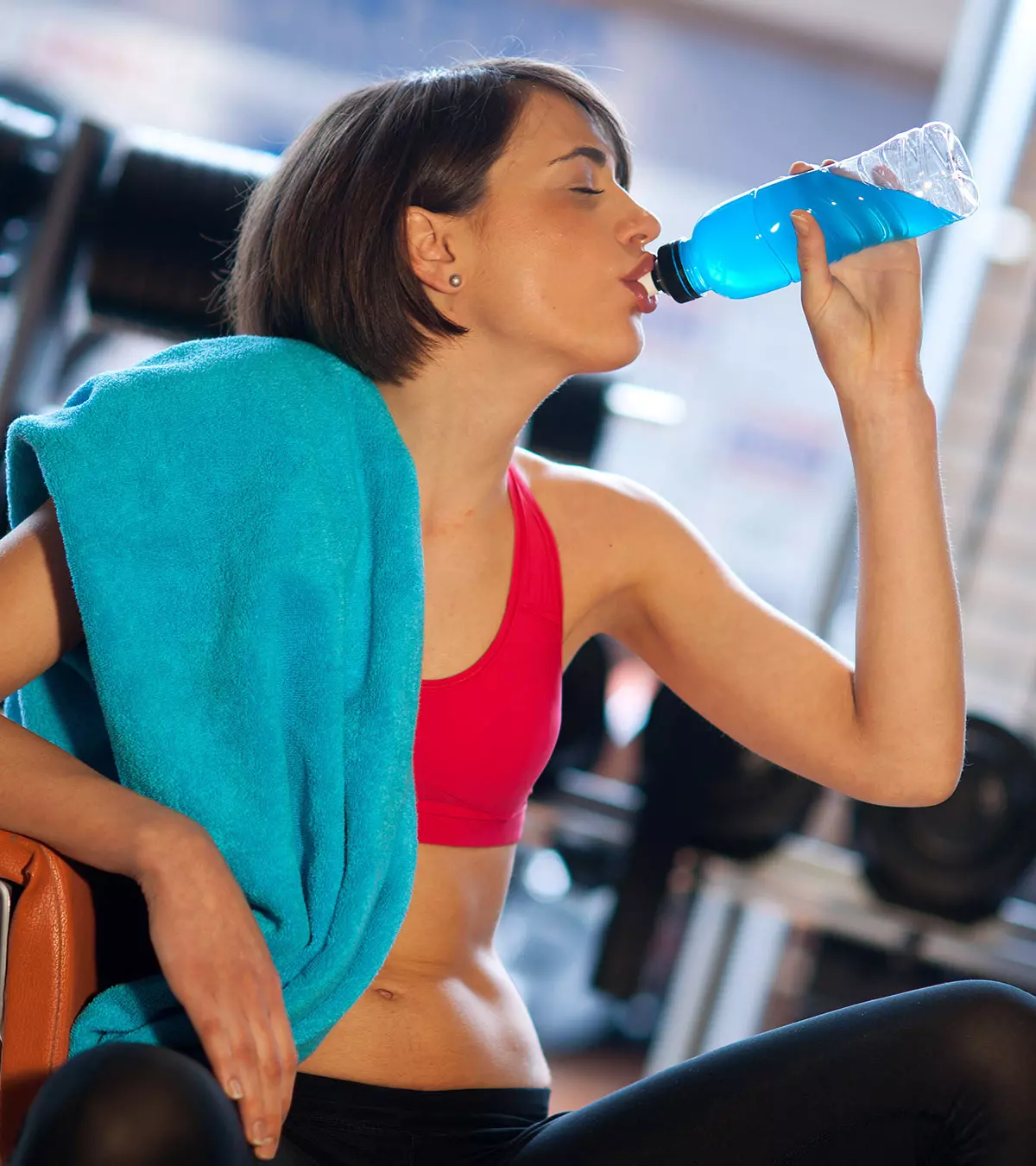
Image: Shutterstock
Regularly consumed, the effects of energy drinks on teenagers can be dangerous. While many claim to be all-natural, they aren’t. Energy drinks are loaded with caffeine and sugar, which can negatively affect health in the long run (1).

Without thorough research, it’s impossible to decide if it’s safe for teens to consume energy drinks daily, before or after playing a sport or an activity, or better sports performance. So, instead of making it a habit to intake energy drinks that appear on the store shelves, parents need to swap them with homemade beverages with natural ingredients known to boost energy and keep the sugar levels stable.
Teenagers and their parents need to understand the potential health risks linked to energy drinks. By learning about these risks, teens may make better-informed decisions regarding their consumption. To help you understand the side-effects of energy drinks on teenagers, we have put together some information below. Read on to find more.
Key Pointers
- Consuming energy drinks is unhealthy due to the presence of stimulants like caffeine.
- Teenagers who frequently consume energy drinks may have a higher risk of developing conditions such as diabetes and heart issues.
- Insomnia, nausea, headaches, and stomach pain are among the potential negative effects of energy drinks.
- The primary factors that influence teenagers’ consumption of energy drinks include taste, promotion, price, accessibility, and peer pressure.
Types Of Energy Drinks
Energy drinks are a type of beverage specifically made to stimulate the central nervous system (CNS) and boost energy levels. Energy drinks could be of two types (1):
- Drinks that come in containers are similar to soft drinks.
- Energy shots come in small containers and usually contain caffeine, B complex vitamins, taurine, ginseng, glucuronic acid, l-tyrosine, guarana extract, green tea extract, and other stimulants (2).
In both categories, caffeine is a major component.
However, energy drinks can be further categorized into more categories:
- Traditional energy drinks: These energy drinks mostly contain caffeine, taurine, and B complex vitamins, along with carbohydrates and other ingredients (3).
- Sugar-free energy drinks: With the increasing demand for sugar-free foods and beverages, energy drinks also hop into the category of sugar-free energy drinks. These beverages contain similar ingredients as traditional energy drinks, including bioactive ingredientsiCompounds with biological activity that have a direct impact on organisms. like caffeine, taurine, glucuronolactone, and B-group vitamins. However, instead of processed sugars, these drinks are calorie-deficient and have added artificial sweeteners (4).
- Natural-ingredient energy drinks: These energy drinks contain natural products like guarana, taurine, yerba mate, and ginseng, instead of added caffeine and taurine (5).
- Sports drinks: These drinks are specifically designed for athletes to improve their performance and energy levels. Their common constituents are carbohydrates, caffeine, and other nutrients that may help improve mental focus, alertness, anaerobic or endurance performance (6).
- Relaxation drinks: These drinks provide relaxation instead of energy boost and contain ingredients, such as melatonin, valerian, kava, tryptophan, and others (7).
According to the American Academy of Pediatrics, energy drinks contain a high amount of caffeine and stimulant substances, which should not be present in the regular diet of teenagers (8).
Why Teenagers Might Like To Drink Energy Drinks?
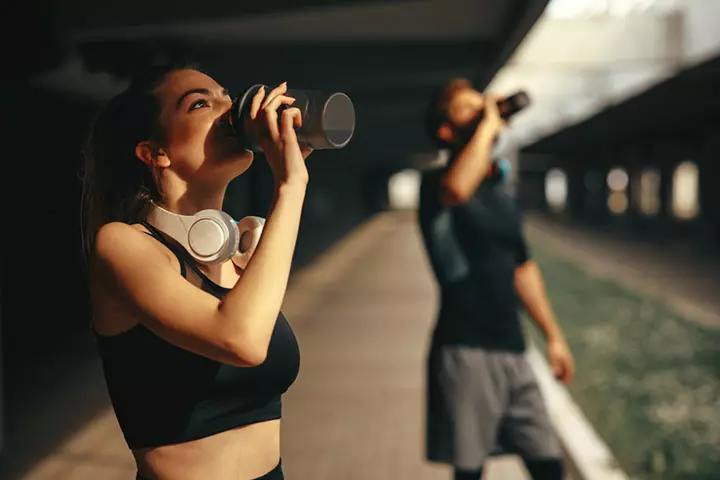
Energy drinks can provide some immediate benefits. According to the Harvard T.H. Chan School of Public Health, controlled trials do show an improvement in the performance of young athletes due to energy drinks. But the institution states, “the majority of studies show an association with negative health effects (9).” Energy drinks provide short-term gains in energy and alertness or concentration. But research concludes that the negative effects of energy drinks prevail over the positive short-term benefits.
Recollecting the moments when he was addicted to caffeine and energy drinks, a teen blogger who goes by the pen name Ry states, “The addiction started with coffee at first. I enjoyed drinking coffee; you could say I was obsessed. But I could only drink so much. It would hurt my stomach, and it took too long to drink. There had to be other ways to get energized.
“‘Go buy some energy drinks,’ my friend said to me. It made sense. They have more caffeine, and they’re only six $ for two at the convenience store. I’d pick up a couple of Red Bulls on the way to school every morning, making sure to grab one for my friend. But eventually, energy drinks weren’t enough. I started “chasing the dragon,” you could say. This was a daily habit for me. I was used to it, and stopping by the convenience store to buy something caffeinated was a part of my routine (i).”
A study on the perception of energy drinks in the UK found that taste, promotion, price, ease of access, and peer influences are the major factors that influence the consumption of energy drinks among children and young people (10). It was noted that manufacturers indulged in ‘value-for-money’ pricing and other marketing activities that might make the beverage attractive.
The researchers concluded that “The lack of a single dominant factor suggests that there is unlikely to be a ‘silver bullet’ in attempting to address this issue.” It means there is no single reason why energy drinks are appealing. A combination of several factors, along with ease of availability and peer pressure, is most likely the reason why teens are attracted to energy drinks. It makes it even more essential for teenagers and their parents to understand the side effects of energy drinks.
 Quick fact
Quick factSide Effects Of Energy Drinks On Teenagers
According to the US National Center for Complementary and Integrative Health, consuming energy drinks could have negative effects on the health of a teenager (1). High amounts of caffeine and additives in energy drinks can be harmful to teenagers’ health.
Here are some unfavorable effects of regular energy drink consumption:
- According to a report, teenagers who regularly take energy drinks might have a risk of sleep issues, poor learning, and poor performance. There could be a higher risk of using drugs, cigarettes, or alcohol (11).

- Shobha Bhaskar, a pediatric hospitalist at St. Louis Children’s Hospital, says that energy drinks are poor in nutrition, rich in sugar content, and high in caffeine. Drinking these beverages regularly could be harmful to teenagers (12).
 Be watchful
Be watchful- According to research by Chapman University, 40% of teenagers (aged 13-19) that consume energy drinks experience side effects such as insomnia, increased heart rate, nausea and vomiting, jitters, headache, and abdominal pain. An extreme side effect of energy drinks could be seizures in teens (13). The additives in these drinks that intensify the effect of caffeine, may cause anxiety and if consumed regularly the stimulant effect of these beverages may also lead to an addiction (12).
- The National Institutes of Health states that consuming high amounts of energy drinks may disrupt the sleeping patterns and might also increase risk-taking behavior (drug use, tobacco use, fighting) (14).

- Energy drinks contain guaranaiA plant native to the Amazon rainforest, the seeds of which contain caffeine and are used in energy drinks , caffeine, creatineiA naturally-occurring amino acid derivative that helps supply energy to muscles , ginseng, taurineiA naturally occurring amino acid in the body and also found in some foods , and different amounts of vitamins, protein, carbohydrates, amino acids, and minerals. A mix of these compounds, along with caffeine, can lead to dehydration since caffeine is diureticiA medication or substance that increases urine production (15). Jesse Feder, a certified personal trainer and strength and conditioning specialist from North Miami Beach, Florida, says, “Since energy drinks usually contain high amounts of caffeine, your body will most likely need to urinate more frequently. Caffeine is a natural diuretic which helps rid your body of salt and fluids. Therefore, energy drinks will deplete the electrolytes in your body.”
- According to the University of Utah, energy drinks may contain more than 500mg of caffeine, which is equivalent to 14 cans of caffeinated soft drinks (15). Such an amount of caffeine can be associated with caffeine toxicity which may develop seizuresiAbnormal burst of electrical activity between brain cells. , arrhythmiasiAbnormal heartbeat pattern or rhythm. , or aspirate vomitusiWhen vomit accidentally enters the lungs through the airway. if the treatment is delayed (16).
- Certain energy drinks could contain alcohol. The manufacturers of alcoholic energy drinks do not include caffeine and other stimulants due to a ban by the US Food and Drug Administration (17). However, these drinks are still sold as ‘energy drinks’ since the drinks are reformulated with no added stimulants (18).
- Energy drinks also contain added sugars which can eventually lead to weight gain, obesity, type 2 diabetes, heart disease, kidney diseases, tooth decay and cavities, and many more health problems (19). Reports show that children and teens in the US consume 17% of their calories from added sugars, and nearly half of it comes from sugary drinks like energy drinks (20). Even artificial sweeteners and other sugar substitutes can pose health risks, like heart problems and even cancer risk if taken in excess or in the long run (21).
 Experts say
Experts sayNote that there is an increased risk of these side effects only if the teen drinks the energy drinks regularly. A can of it occasionally may not cause any serious problems.
How Much Energy Drink Can Teenagers Drink?
There is no designated safe limit for energy drinks for teenagers. However, American Academy of Child and Adolescent Psychiatry (AAACP) recommends teens aged 12 to 18 years to not consume caffeine more than 100 milligrams per day which is equivalent to one cup of coffee (20). Since energy drinks contain much higher levels of caffeine than in coffee, it is best to avoid giving them to children and teens.
In an extensive review conducted by the AAP Committee on Nutrition and the Council on Sports Medicine and Fitness, it is stated, “caffeine and other stimulant substances contained in energy drinks have no place in the diet of children and adolescents (22).”
Healthy Alternatives For Energy Drinks
There are several healthy drinks for kids and teens that have significantly less sugar and caffeine than energy drinks.
Dietitian Lauren Manaker from South Carolina advises, “Adding milk to your favorite breakfast meals like oats, chia pudding, or smoothies is a tasty way to get essential nutrients, including high-quality protein and B vitamins, to help provide lasting energy for your day.”
- Coconut water is a much healthier alternative, rich in nutrients such as minerals and potassium. This can be either consumed fresh or blended with fruits for an enhanced flavor (23).
- Homemade flavored water can be made by adding frozen juice cubes, frozen or fresh fruit chunks, and sliced vegetables to their pitcher of water (24).
- A glass of cold smoothie made from fresh fruits or vegetables combined with yogurt or milk can be a fulfilling alternative. One may even add protein powders, nut butter, and other flavoring ingredients, such as honey or chocolate, to enhance its taste (25).
- Matcha tea, black tea, and green tea can also become nutrition-rich and flavorsome substitutes for energy drinks if one prefers a warm, refreshing drink (26).
- Kombucha, or fermented probiotic tea with a fizzy appearance and tangy taste, is a tasty and healthy alternative to energy drinks (15).
- Herbal teas, such as peppermint tea, ginger tea, and chamomile tea, can also be great alternatives for energy drinks for a refreshing and relaxing mood and added medicinal benefits (27).
What To Do If Your Teen Is Addicted To Energy Drinks?
According to the National Center for Complementary and Integrative Health, almost one-third of adolescents aged 12 to 17 years consume energy drinks regularly (1). Michael Garcia, MD, a clinical nutritionist at UCLA Health says, “Depending on the frequency with which they consume energy drinks, adolescents can develop a dependence on that high… It’s hard to break that cycle, which may lead to withdrawal symptoms like a headache or depressed mood (28).” So, if your teen shows addiction to drinking energy drinks, here are some tips that may help (29):
- Help them understand the possible risks of energy drinks.
- Have an open discussion on health, nutrition, and informed decision-making.
- Encourage your teen to gradually replace energy drinks with healthier alternatives like water or natural juices.
- Be a model to them by not buying or drinking these products yourself.
- Provide a supportive home environment with nutritious options.
- If the problem persists, consult a healthcare professional for personalized guidance.
Frequently Asked Questions
1. What is the age limit on energy drinks?
There’s no age limit on the consumption of energy drinks for children and teens (30). However, apex health organizations recommend that children and teens should not consume energy drinks (8).
2. Do energy drinks make me fat?
Occasional intake of energy drinks will not cause weight gain. However, its excessive intake can raise the risk of unwanted weight gain. Energy drinks contain high amounts of sugar. Research shows that consuming too much sugar can cause weight gain and other weight-related health problems (9).
3. Can energy drinks be life-threatening?
“If consumed in excessive amounts, energy drinks can be life-threatening. Excess caffeine and other stimulants can put too much stress on your heart and skyrocket your blood pressure. This may lead to a heart attack and even death. Additionally, energy drinks contain excessive amounts of B-vitamins which can cause things like blurred vision, liver damage, and nerve damage,” observes Feder.
Some kids believe energy drinks help them remain awake and perform better. However, no scientific proof exists that these drinks benefit a teenager’s overall health. Instead, regular usage of these beverages has shown to have a detrimental impact on your teen’s learning and sleep. Also, there could be adverse consequences like dehydration from sugary and caffeine content of energy drinks. So, teach your teen about the effects of energy drinks and urge them to drink water and consume fresh fruit to satisfy the body’s demands while exercising.
Infographic: Adverse Effects Of Energy Drinks On Teenagers
Energy drinks have become increasingly popular among teenagers in recent years. While they may provide a temporary spike in energy, they can have serious adverse effects on the health of teens. Check out the infographic below to learn about some negative impacts that energy drinks have on your teenager’s health.
Some thing wrong with infographic shortcode. please verify shortcode syntax
Illustration: Side Effects Of Energy Drinks On Teenagers
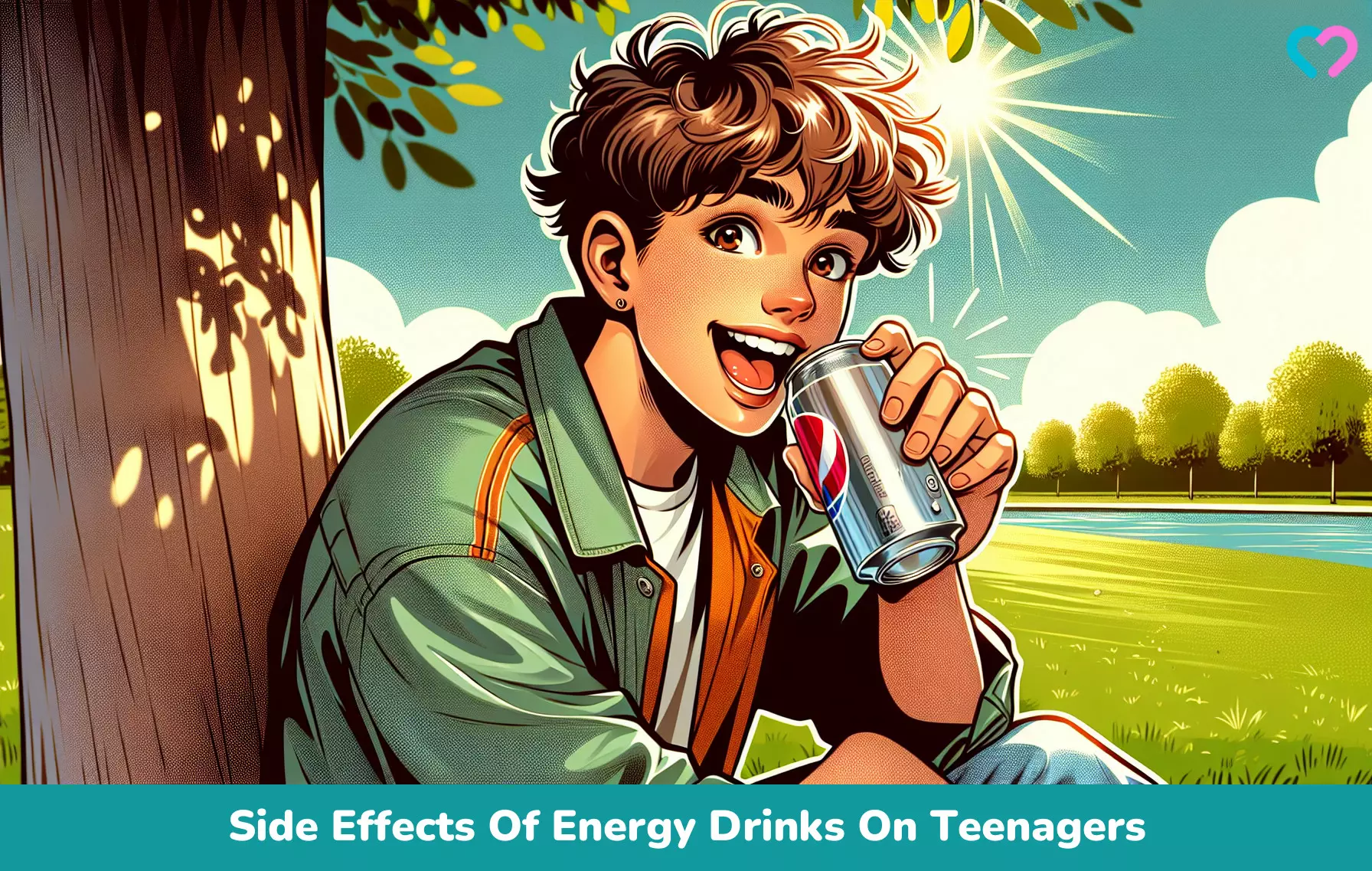
Image: Dall·E/MomJunction Design Team
Energy drinks can have a huge impact on teens and young adults. Learn how they can affect your health and wellbeing in this informative video.
Personal Experience: Source
MomJunction articles include first-hand experiences to provide you with better insights through real-life narratives. Here are the sources of personal accounts referenced in this article.
i. The addiction that took over a teen;https://medium.com/invisible-illness/the-addiction-that-took-over-a-teen-ca53edca1991
References
1. Energy Drinks; National Center for Complementary and Integrative Health
2. John P. Higgins et al; Some Popular Energy Shots and Their Ingredients: Are They Safe and Should They Be Used? A Literature Review; MDPI (2017)
3. David O Kennedy and Andrew B Scholey; A glucose-caffeine ‘energy drink’ ameliorates subjective and performance deficits during prolonged cognitive demand; NCBI (2004)
4. Jennifer L. Miles-Chan et al.; The thermic effect of sugar-free Red Bull: Do the non-caffeine bioactive ingredients in energy drinks play a role/; Obesity A Research Journal (2014)
5. Kevin A Clauson et al.; Safety issues associated with commercially available energy drinks; NCBI (2003)
6. Bill Campbell et al.; International Society of Sports Nutrition position stand: energy drinks; Journal of the International Society of Sports Nutrition (2013)
7. Sylvie Stacy; Relaxation Drinks and Their Use in Adolescents; Journal of Child and Adolescent Psychopharmacology (2011)
8. The Buzz on Energy Drinks; CDC
9. Energy Drinks; Harvard T.H. Chan School of Public Health
10. S. Visram et al., Children and young people’s perceptions of energy drinks: A qualitative study; National Center for Biotechnology Information
11. E. J. Markey et al., Buzz Kill: A Survey of Popular Energy Drinks Finds Majority of the Market Unwilling to Make Commitments to Protect Adolescents
12. S. Bhaskar; The truth about teens and energy drinks; Childrensmd.org (2015)
13. Energy Drink Use in Teens has Adverse Effects; Chapman University (2018)
14. C. Pennington; The Effects of Energy Drinks on Adolescents; University of Connecticut (2010)
15. Buzz in a Bottle; University of Utah
16. Alexandra Murray and Jeremy Traylor; Caffeine Toxicity; NIH (2025)
17. Effects of Mixing Alcohol and Caffeine; US Centers for Disease Control and Prevention
18. The banning of alcoholic energy drinks; American Psychological Association
19. Get the Facts: Sugar-Sweetened Beverages and Consumption; Centers for Disease Control and Prevention
20. Energy Drinks and Kids: What You Need to Know; Johns Hopkins Medicine
21. Wissam Ghusn et al.; The Impact of Artificial Sweeteners on Human Health and Cancer Association: A Comprehensive Clinical Review; Cureus (2025)
22. Marcie Beth Schneider et al.; Sports Drinks and Energy Drinks for Children and Adolescents: Are They Appropriate?; AAP Publications
23. 8 Natural Energy Drinks to Give You a Boost Without Caffeine; Lifehack
24. Adolescents and Energy Drinks: Know the Dangers; Mississippi State University Extension
25. Smoothies: A healthy alternative; Michigan State University
26. Are There Healthy Alternatives to Coffee and Energy Drinks?; text
27. The health benefits of 3 herbal teas; Harvard Health Publishing
28. For kids and teens, energy drinks may have harmful side effects; UCLA Health
29. Addicted to Awake: The Consequences of Energy Drinks in Adolescents; The Children’s Mercy Hospital
30. Energy Drinks: Information for Retailers; ACS
Community Experiences
Join the conversation and become a part of our nurturing community! Share your stories, experiences, and insights to connect with fellow parents.
Read full bio of Dr. Anuradha Bansal
- Lauren Manaker is a research assistant at the Center for Disease Control and Prevention (Atlanta, GA), and Shands Hospital (Gainesville, FL). She did her BSc in Food Science and Human Nutrition from the University of Florida and MS in Clinical Nutrition from Rush University (Chicago, IL).
 Lauren Manaker is a research assistant at the Center for Disease Control and Prevention (Atlanta, GA), and Shands Hospital (Gainesville, FL). She did her BSc in Food Science and Human Nutrition from the University of Florida and MS in Clinical Nutrition from Rush University (Chicago, IL).
Lauren Manaker is a research assistant at the Center for Disease Control and Prevention (Atlanta, GA), and Shands Hospital (Gainesville, FL). She did her BSc in Food Science and Human Nutrition from the University of Florida and MS in Clinical Nutrition from Rush University (Chicago, IL). - Jesse Feder did his Bachelor of Science in Applied Physiology and Kinesiology with a specialty in Exercises Physiology from the University of Florida. A certified personal trainer by the American College of Sports Medicine (ACSM-CPT) and a Certified Strength and Conditioning Specialist by the National Strength and Conditioning Association (NSCA-CSCS), he has seven years of experience in training people and providing nutrition guidance. Jesse holds a masters degree in Dietetics and Nutrition from Florida International University and is a Licensed and Registered Dietitian (LDN/RDN).
 Jesse Feder did his Bachelor of Science in Applied Physiology and Kinesiology with a specialty in Exercises Physiology from the University of Florida. A certified personal trainer by the American College of Sports Medicine (ACSM-CPT) and a Certified Strength and Conditioning Specialist by the National Strength and Conditioning Association (NSCA-CSCS), he has seven years of experience in training people and providing nutrition guidance. Jesse holds a masters degree in Dietetics and Nutrition from Florida International University and is a Licensed and Registered Dietitian (LDN/RDN).
Jesse Feder did his Bachelor of Science in Applied Physiology and Kinesiology with a specialty in Exercises Physiology from the University of Florida. A certified personal trainer by the American College of Sports Medicine (ACSM-CPT) and a Certified Strength and Conditioning Specialist by the National Strength and Conditioning Association (NSCA-CSCS), he has seven years of experience in training people and providing nutrition guidance. Jesse holds a masters degree in Dietetics and Nutrition from Florida International University and is a Licensed and Registered Dietitian (LDN/RDN).
Read full bio of Swati Patwal
Read full bio of Rohit Garoo
Read full bio of Dr. Joyani Das






